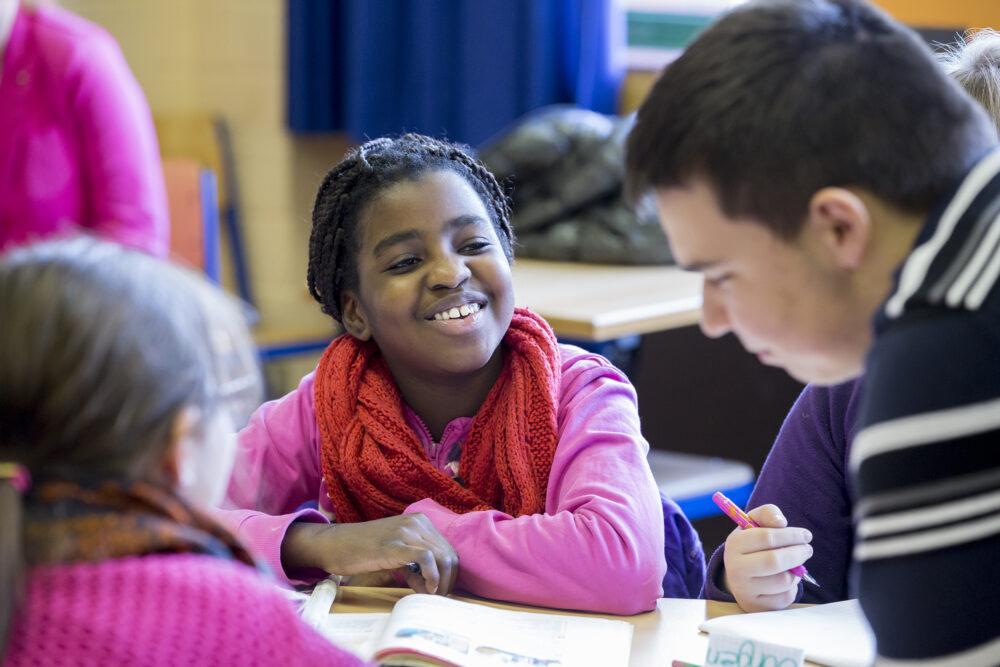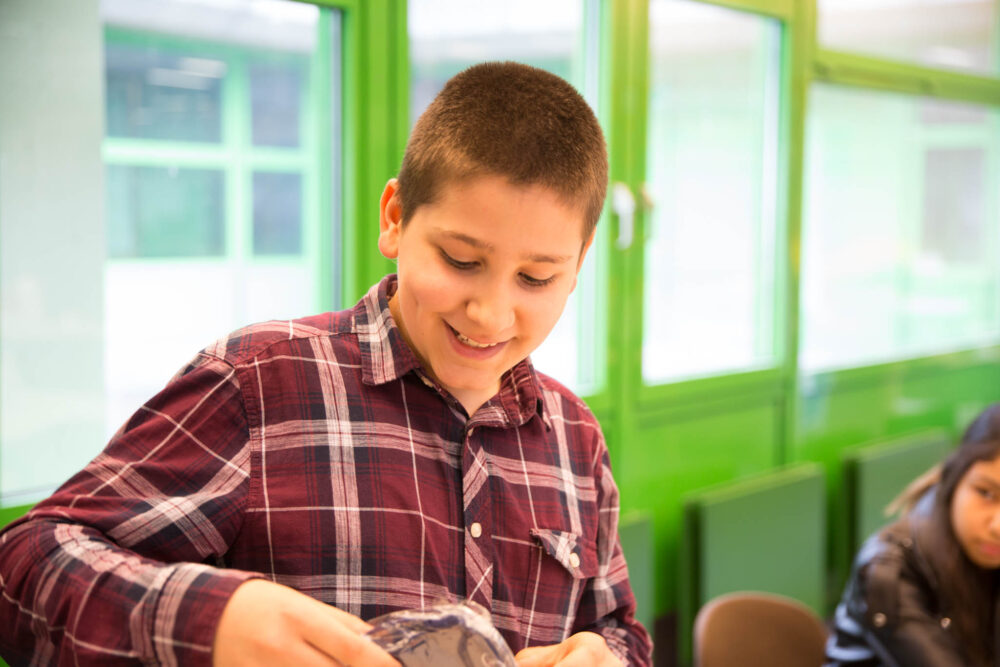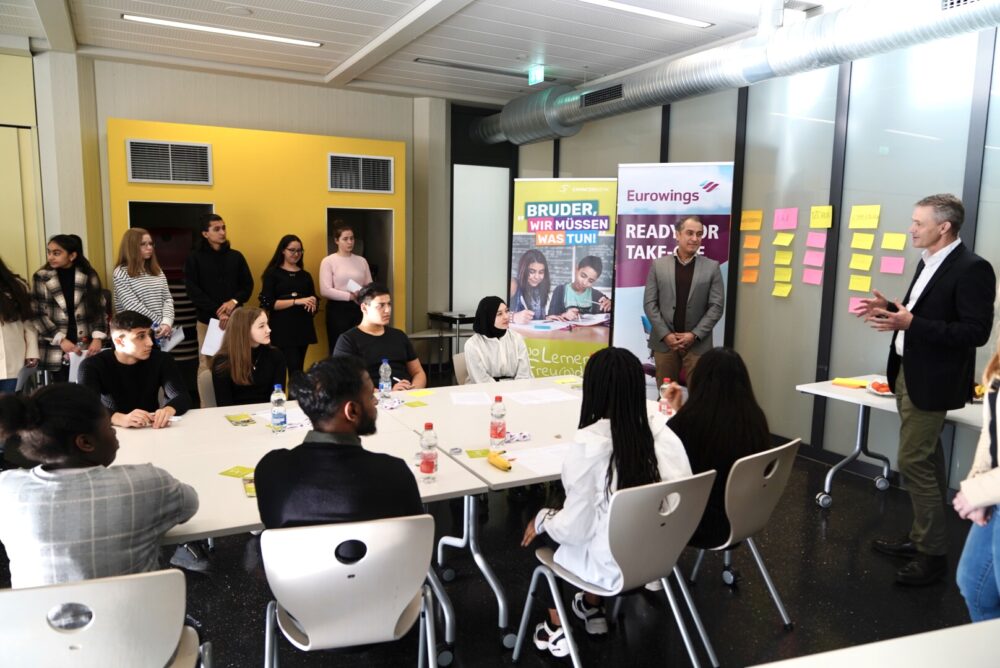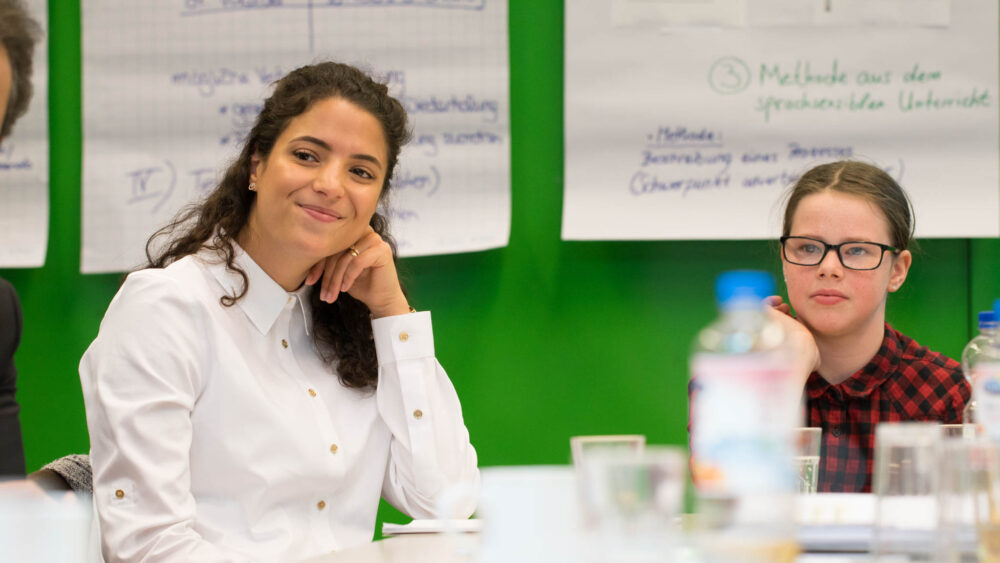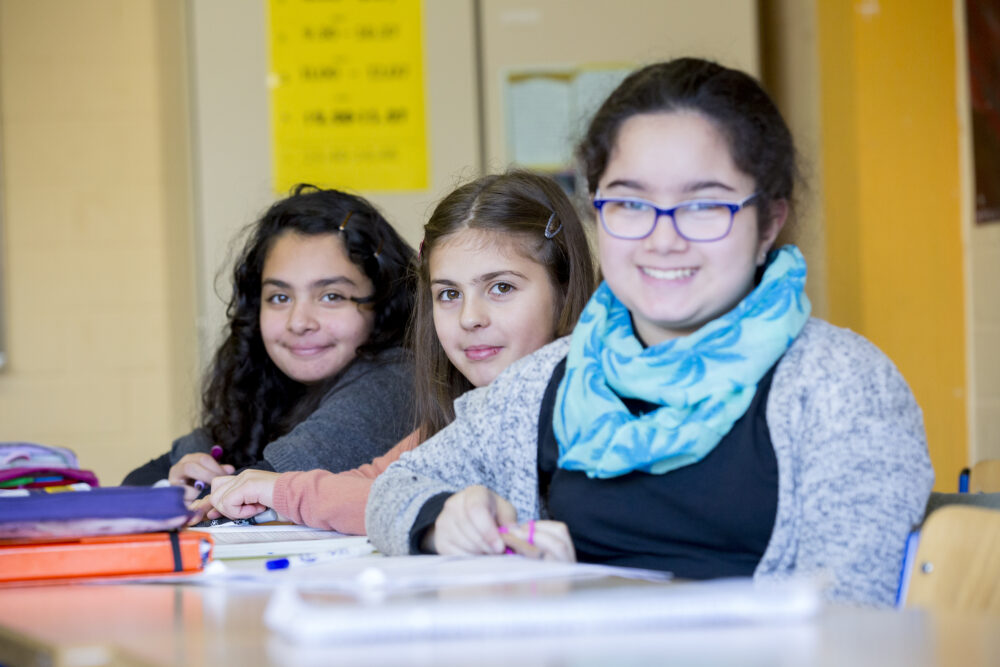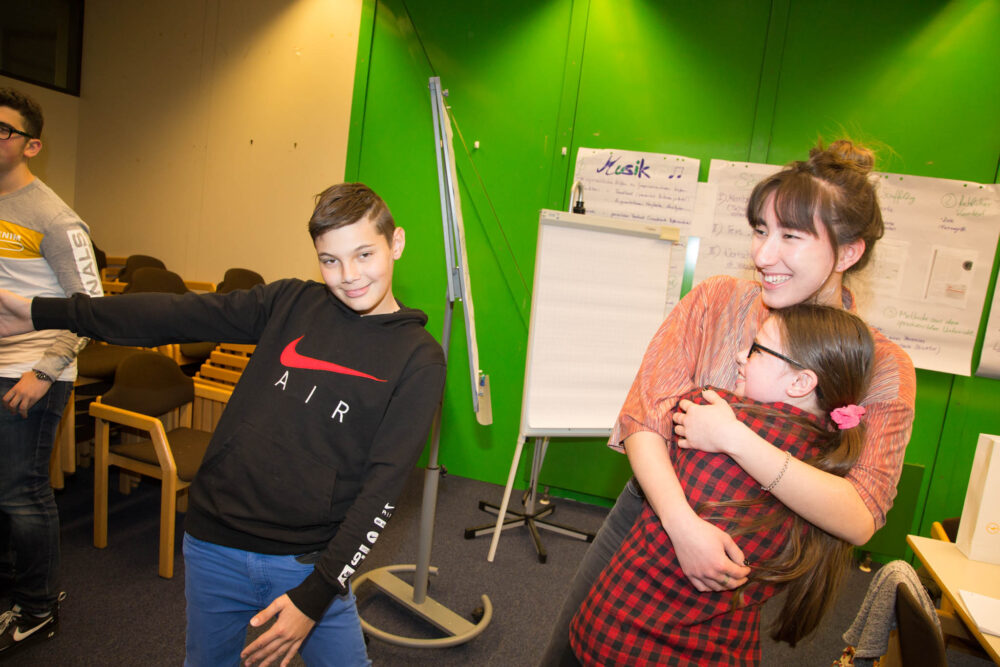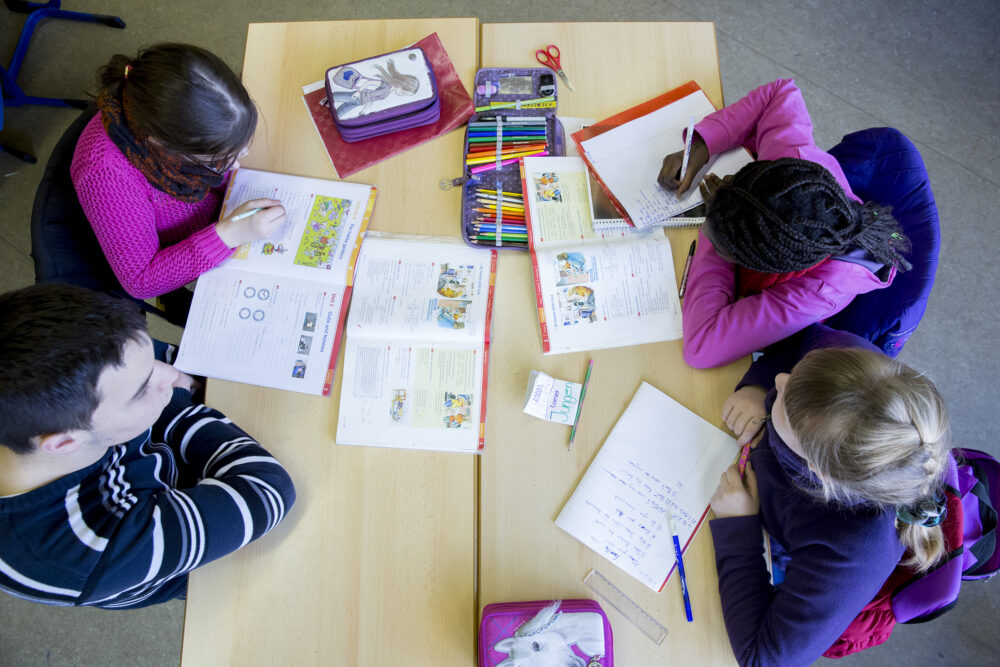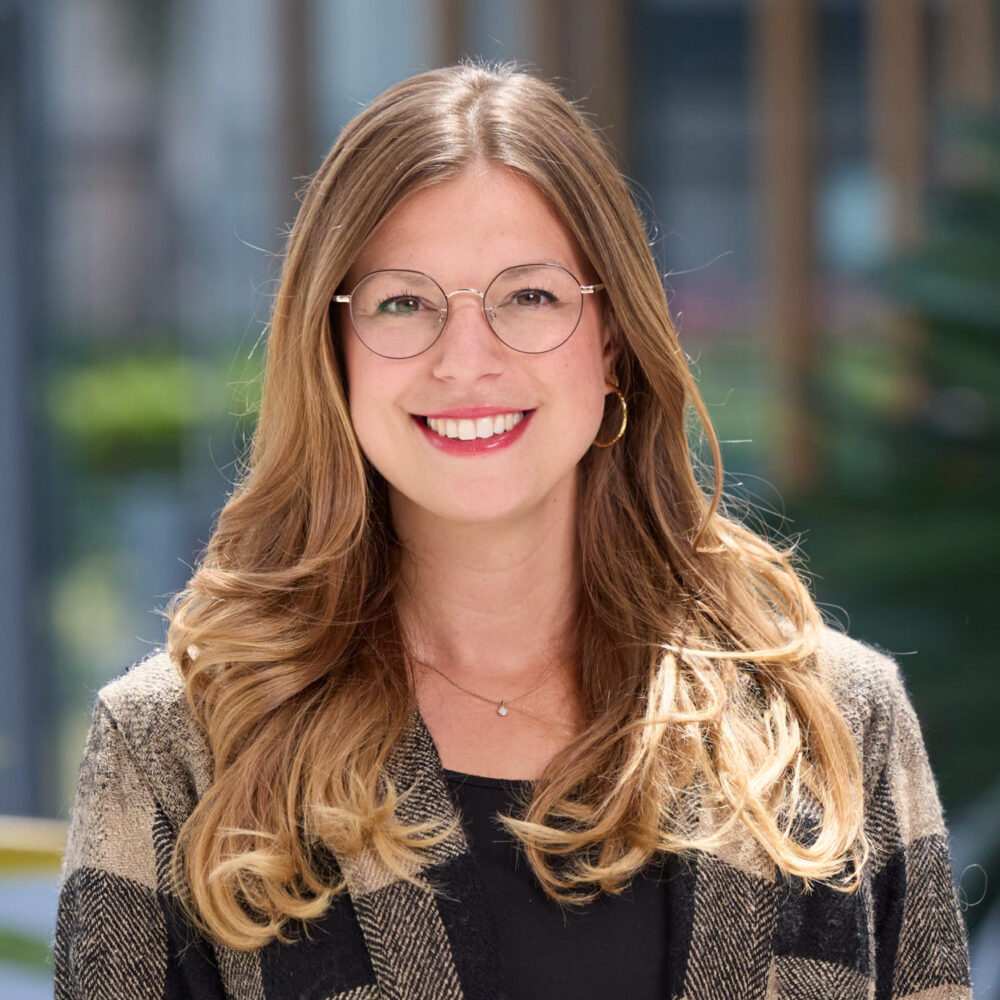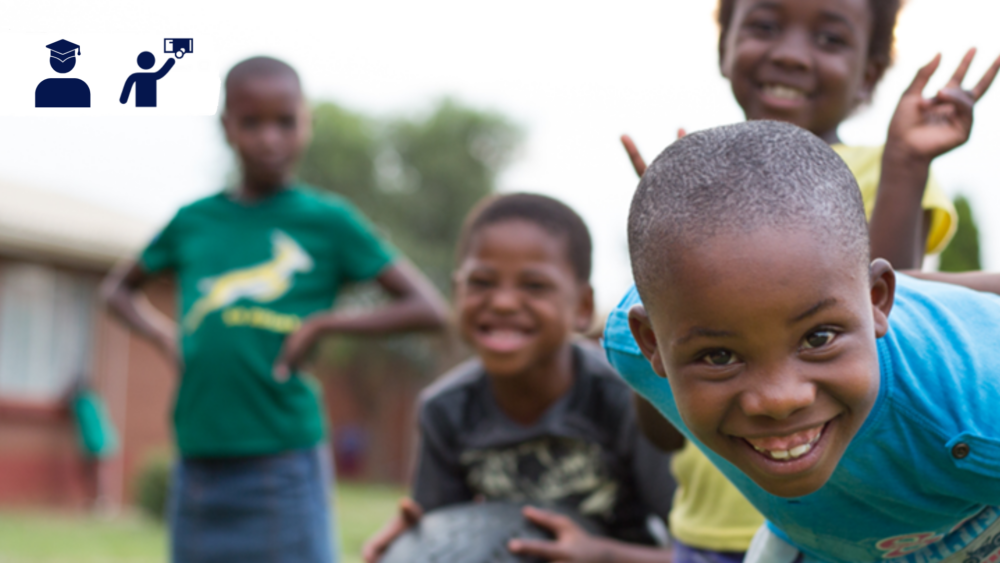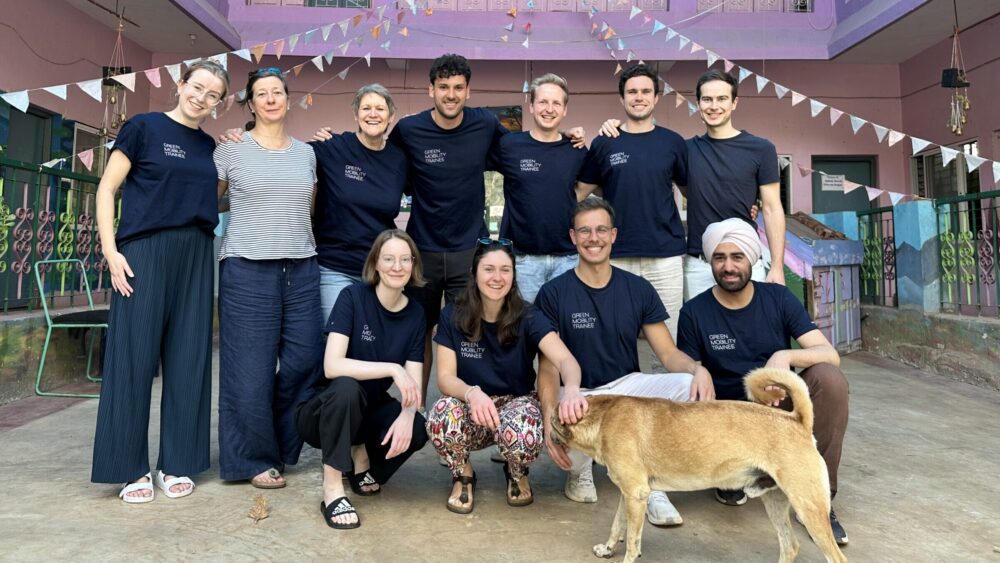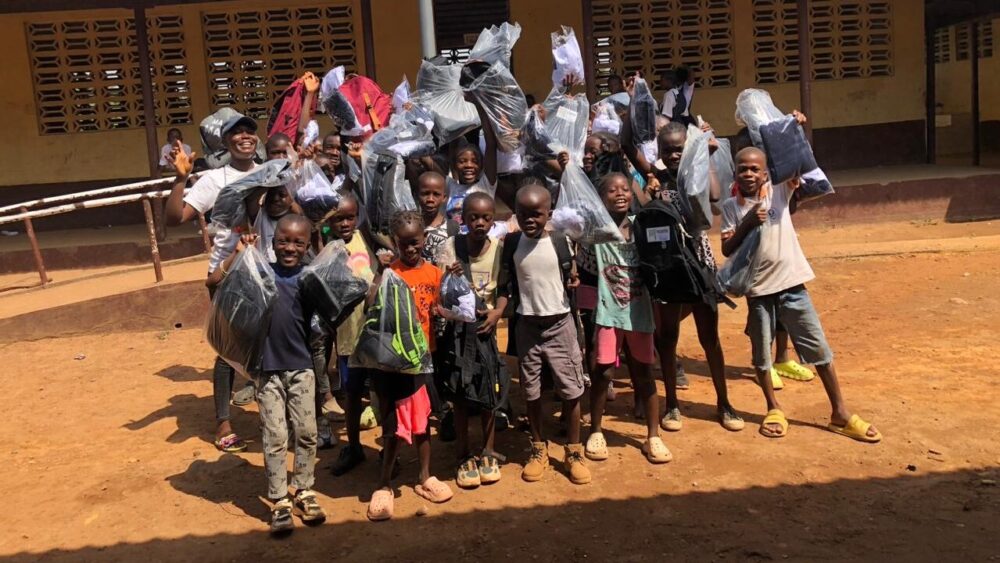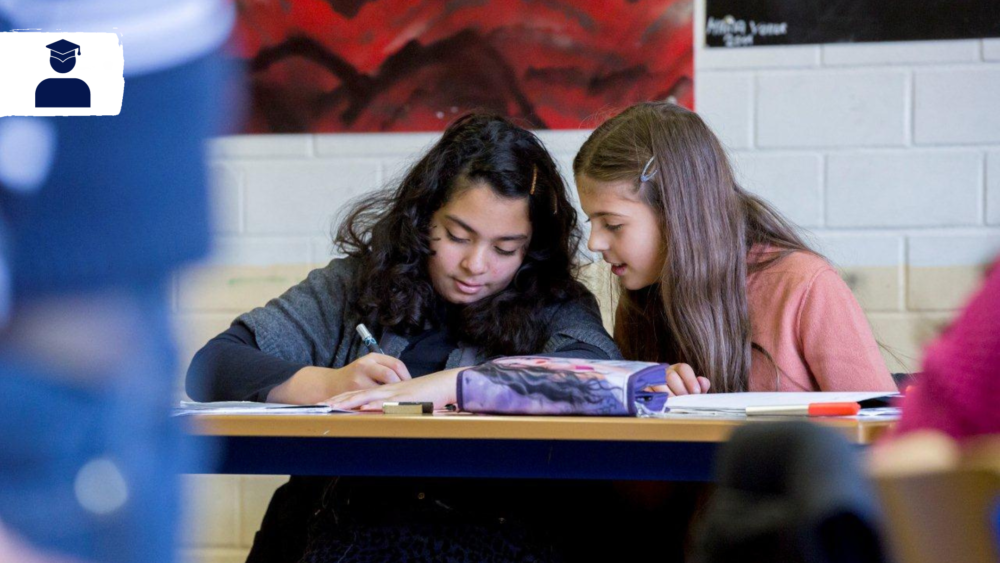
Educational Support, Düsseldorf
This project gives pupils from educationally disadvantaged or socially disadvantaged families the opportunity to develop their individual potential through an appropriate learning and support programme.
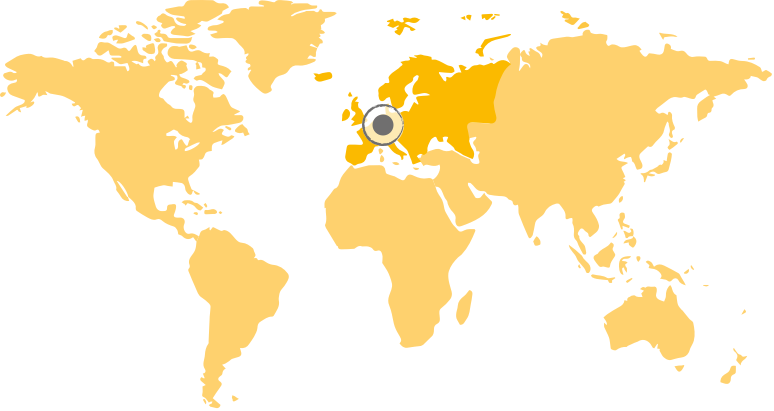
Project Background
According to current studies, the socio-economic background of students in Germany still strongly determines their educational success and thus their social participation and integration. An important indicator of this is the educational level of the parents: Children from socially weaker families have significantly worse chances of success at school in Germany than children whose parents went to University. In addition to parental qualifications, the migration background also has a major influence on the educational opportunities of young people, which are also influenced by the choice of school type. For example, the proportion of pupils with a migrant background at lower secondary schools is twice as high as at grammar schools.People with lower educational qualifications are at higher risk of unemployment and poverty. The structural disadvantage of people from socially weaker backgrounds in the German education system must be counteracted by giving all social classes the same chances of access and success in the education sector.
With this project, pupils from educationally disadvantaged or socially disadvantaged families at three schools in Düsseldorf are given the opportunity to develop their individual potential through an appropriate learning and support programme. At the same time, the project promotes the development of social commitment among all those involved, in addition to improving their technical and academic skills. As a result, the children have a greater chance of achieving better results at school.
Target Group
The project is aimed at children and young people from socio-economically weaker families with and without a migration background. After all, in addition to educational opportunities, the choice of school in Germany is also strongly determined by social background. In mathematics, ninth-graders from higher social classes have up to two years’ advantage over their classmates from educationally deprived families. In addition, children of parents with high degrees are much more likely to obtain academic certificates themselves than children of parents with lower degrees. Despite some initiatives, it is not yet possible to fully compensate for the disadvantages of pupils’ origins. This results from the fact that the parents’ origin or income is not only decisive for educational advancement, but rather for the future prospects and participation opportunities of young people.
Project Goals
In order to ensure equal opportunities and reduce socio-economic barriers, the Chancenwerk association, which was founded in 2004, developed an innovative “learning cascade model” that promotes not only technical, but above all social skills and thus facilitates educational advancement and educational equity. This unique concept of educational promotion is now being implemented at 86 schools in 30 German cities.
With help alliance’s support, the project is being implemented at three schools in Düsseldorf. Pupils in the ninth and tenth grades with and without a migration background receive learning support from students in their “problem subjects”. In return, they should commit themselves to act as mentors – so-called “learning coaches” – for younger pupils. This way both groups benefit: the older students acquire social skills, the younger students get a contact person they can turn to with their questions. The aim is to integrate the disadvantaged pupils socially, culturally and economically in the long term. In this way, a cross-grade responsibility structure will be established in the schools and the cohesion among the pupils will be improved.
The project aims in particular to reach those pupils who, due to their origin from educationally and economically disadvantaged or immigrant backgrounds, have been denied the opportunity to develop their potential.
What are you supporting
With your donation you support us in covering the costs for the pedagogical management and coordination, the operative implementation of the learning cascade, the training and further education of the honorary staff, as well as for the administration, thus contributing to educational justice in Germany.

